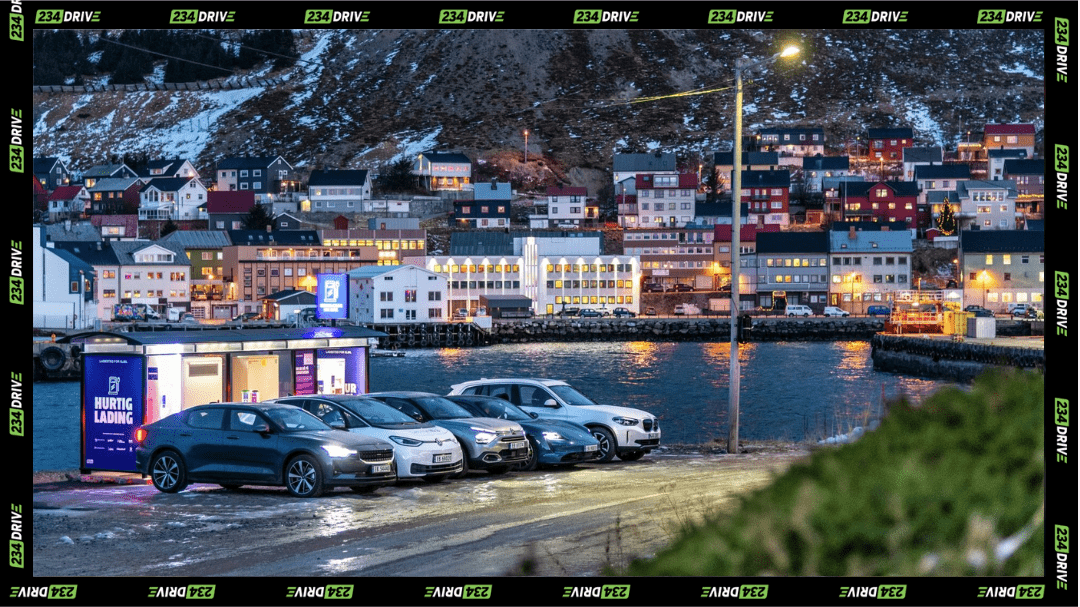When it comes to cars, few countries command as much respect and admiration as Germany. Known for precision engineering, high performance, and luxurious design, German car brands are globally recognised benchmarks in the automotive world. From compact city rides to powerful sports cars and ultra-luxury sedans, German automakers have set the gold standard. If you’ve ever searched for the most reliable or performance-driven vehicles, you’ve likely stumbled upon one or more German brands.
In this article, we’ll unpack the major German car brands, explore a few lesser-known manufacturers, and dive into what makes these brands so unique. Whether you’re a gearhead or just someone interested in premium craftsmanship, this is your one-stop overview of Germany’s automotive excellence.
Why German Car Brands Matter
Germany’s automotive industry isn’t just about cars — it’s about identity. The sector employs nearly 800,000 people and contributes to a deep sense of national pride. With almost 6 million vehicles produced annually in Germany and another 5.5 million produced abroad by German manufacturers, its global reach reinforces Germany’s image as a leader in engineering. Cars like the VW Beetle, BMW 3 Series, and Porsche 911 aren’t just vehicles — they’re cultural icons that have shaped how the world sees German innovation.
The Big Six: Germany’s Automotive Titans
1. Volkswagen (VW)
Founded in 1937, Volkswagen literally means “people’s car”. The idea was simple: create an affordable, reliable car for the masses. Today, it’s the flagship brand of the Volkswagen Group — one of the largest car manufacturers in the world. VW has produced some of the most successful cars in automotive history, including the Beetle, Golf, and Passat. Volkswagen’s modern lineup continues to blend practicality with engineering brilliance.
Key Models: Golf, Tiguan, Passat, ID.4 (EV)
Interesting Fact: The original Beetle is one of the best-selling cars of all time, with over 21 million units sold.
2. BMW
Bayerische Motoren Werke AG (BMW), founded in 1916, started as an aircraft engine manufacturer. Today, it’s synonymous with luxury and performance. BMW is known for making “the ultimate driving machine”, offering sports sedans, SUVs, and electric vehicles that prioritise driver engagement.
Key Models: 3 Series, X5, i4, M3
Interesting Fact: BMW also owns Rolls-Royce, a symbol of ultra-luxury around the globe.
3. Mercedes-Benz
Dating back to 1926, Mercedes-Benz represents timeless luxury
, cutting-edge technology, and comfort. It pioneered many modern car innovations, including crumple zones and anti-lock brakes. Mercedes models range from executive sedans to high-performance AMG beasts.
Key Models: C-Class, E-Class, S-Class, GLE, EQS (EV)
Interesting Fact: The brand’s motto, “The Best or Nothing,” reflects its commitment to excellence in both luxury and engineering.
4. Audi
Founded in 1909 and acquired by Volkswagen Group in the 1960s, Audi has become a powerhouse of design, technology, and performance. With its famous Quattro all-wheel-drive system and futuristic interiors, Audi competes head-to-head with BMW and Mercedes.
Key Models: A4, Q5, e-tron GT, RS7
Interesting Fact: Audi’s four-ring logo symbolizes the merger of four companies in 1932: Audi, DKW, Horch, and Wanderer.
5. Porsche
Founded in 1931 and known globally for its sports cars, Porsche has redefined performance for decades. Though it’s famous for the iconic 911, the brand has also expanded into luxury SUVs and electric vehicles without sacrificing its racing DNA.
Key Models: 911, Cayenne, Taycan, Panamera
Interesting Fact: The Porsche 911 has remained in continuous production since 1964.
6. Opel
One of the oldest names in the business, Opel was founded in 1862 and started producing cars in 1899. Although it’s no longer German-owned (it became part of the Stellantis Group), Opel remains a vital player in the European market, known for reliable, budget-friendly vehicles.
Key Models: Corsa, Astra, Mokka
Interesting Fact: Opel was once a subsidiary of General Motors (GM) before transitioning to PSA and now Stellantis.
Beyond the Giants: Other Noteworthy German Brands
Smart
A joint venture between Mercedes-Benz and Swatch, Smart was created to address the need for tiny, efficient city cars. Known for its quirky design and compact footprint, Smart’s current offerings have shifted toward electric-only models under the partnership with Chinese manufacturer Geely.
Key Model: Smart EQ Fortwo
Who It’s For: Urban drivers who want a green, compact option for tight parking spaces.
Maybach
Maybach is the definition of ultra-luxury. Originally founded in 1909, it was later revived by Mercedes-Benz. Today, Maybach serves as the high-end sub-brand for Mercedes, with models that compete with Rolls-Royce and Bentley.
Key Model: Mercedes-Maybach S-Class
Who It’s For: Celebrities, heads of state, and high-net-worth individuals who want the pinnacle of automotive opulence.
Niche and Specialty Car Makers
Germany isn’t all about mass-market or luxury cars. It’s also home to boutique manufacturers that build rare and innovative vehicles.
Wiesmann
Wiesmann specializes in handmade, retro-style sports cars that offer modern performance with a classic look. After a brief hiatus, the brand is back in action, blending tradition with electrification.
Notable Model: Wiesmann MF5
Fun Fact: The company’s gecko logo represents its grip on the road.
Apollo (formerly Gumpert)
Known for creating one of the most aggressive track-focused supercars, the Apollo IE (Intensa Emozione), this brand is for hardcore enthusiasts. It emphasises speed, aerodynamics, and a radical driving experience.
Notable Model: Apollo IE
Fun Fact: Its predecessor, the Gumpert Apollo, could drive upside down in a tunnel at high speed (at least theoretically).
Artega
Founded in 2006, Artega produces niche sports cars like the Artega GT. The company has also dabbled in electric mobility, including an electric minivan concept.
Key Focus: Lightweight chassis and agile handling.
Isdera
Isdera has been crafting exotic, high-performance cars since 1969. The brand is relatively unknown outside enthusiast circles but has produced striking, limited-run models.
Most Famous Model: Commendatore 112i, known for its gullwing doors and wild styling.
Bitter
Bitter started in the 1970s producing luxury sports cars based on Opel mechanicals. Though small in production volume, Bitter cars are known for elegance and uniqueness.
Appeal: Rare finds for collectors and vintage enthusiasts.
What Makes German Cars So Special?
- Engineering Precision: German cars are often associated with meticulous engineering. Whether it’s the tight handling of a BMW or the unmatched comfort of a Mercedes-Benz, the attention to detail is evident.
- Build Quality: These vehicles are built to last. From the materials used inside to the robustness of the engine bay, there’s a consistent emphasis on durability.
- Innovation: German brands were among the first to introduce technologies like ABS, traction control, LED lighting, and adaptive cruise control.
- Heritage and Legacy: From Le Mans victories to groundbreaking concept cars, German automotive brands have made history again and again.
German Brands in Global Markets
While Germany remains the home turf, these brands have captured hearts worldwide. In the United States, BMW and Mercedes-Benz often top luxury sales charts. In China, Audi enjoys massive success among business elites. Meanwhile, Volkswagen remains a family favorite across Europe, Africa, and South America.
In Nigeria, Mercedes-Benz and Volkswagen are especially well-known — the former often seen as a status symbol, and the latter valued for its durability and availability of parts. Used BMWs are also common on Nigerian roads, particularly among younger professionals seeking performance and style on a budget. German cars, in general, have a strong resale market and are often trusted for their engineering, even in the challenging conditions of Nigerian roads.
Electric mobility is another frontier where German brands are stepping up. The Volkswagen ID series, BMW i4, and Porsche Taycan show that German automakers are adapting to the future while maintaining their performance roots. Though EV adoption in Nigeria is still early-stage, these developments hint at a future where German innovation might again lead the charge — this time, in sustainability.
Final Thoughts
Whether you’re drawn to the futuristic tech in an Audi, the timeless luxury of a Mercedes, or the pure driving thrill of a Porsche, there’s a German brand for every kind of car lover. These automakers don’t just build cars — they build legacies. From everyday drivers to million-dollar hypercars, Germany’s contribution to the auto world is unmatched in both scale and quality.
So next time you hear the phrase “German engineering”, know that it’s more than just a marketing slogan. It’s a tradition backed by over a century of excellence, innovation, and an unrelenting passion for the road.










